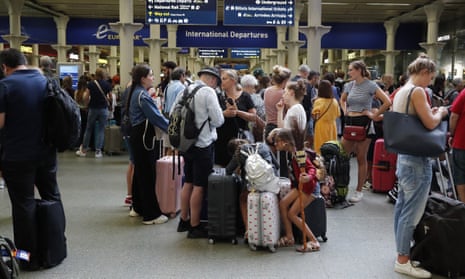A government report on Operation Yellowhammer was leaked on Sunday, revealing the probable consequences of the UK leaving the EU without a withdrawal agreement, which is due to happen on 31 October. Here are the key points:
Transport disruption
50%-85% of lorries travelling across the Channel may not be ready for French customs.
The worst disruption to the short Channel crossings might last three months, although disruption could continue much longer.
In a reasonable worst-case scenario, HGVs could face a maximum delay of 1½-2½ days before being able to cross the border.
Immigration changes
EU likely to have increased immigration checks at border posts. This may lead to passenger delays at St Pancras, Cheriton (Channel tunnel) and Dover.
Medicines
With significant disruption lasting up to six months across the Channel, this will have an impact on the supply of medicines and medical supplies unless there is mitigation via other sources.
Food and water
The supply of certain types of fresh food will decrease. Critical elements of the food supply chain (such as ingredients, chemicals and packaging) may be in short supply. In combination, these two factors will not cause an overall shortage of food in the UK but will reduce availability and choice and increase the price, which will affect vulnerable groups.
Public water services are likely to remain largely unaffected, thanks to actions now being taken by water companies. The most significant single risk is a failure in the chemicals supply chain. The likelihood of this is considered low.
Fuel
Tariffs make UK petrol exports to the EU uncompetitive. Industry had plans to mitigate the impact on refinery margins and profitability, but UK government policy to set petrol import tariffs at 0% inadvertently undermines these plans. This leads to big financial losses and the closure of two refineries (which are converted to import terminals) with about 2,000 direct job losses.
Northern Ireland
The UK would impose the “no new checks with limited exceptions” model announced on 13 March … but this is likely to prove unsustainable because of economic, legal and biosecurity risks.
